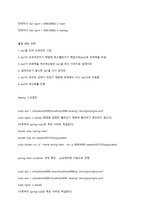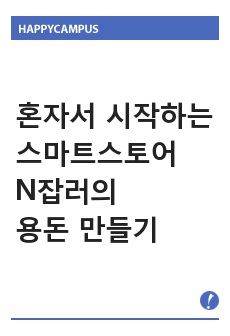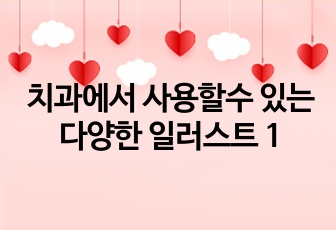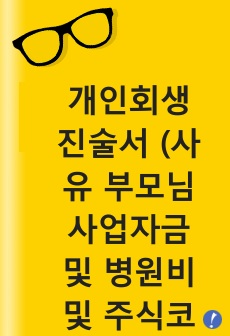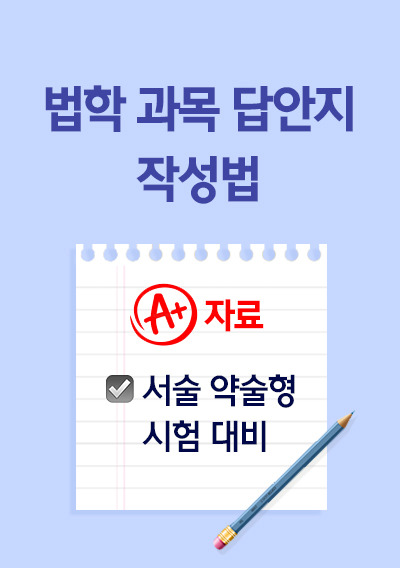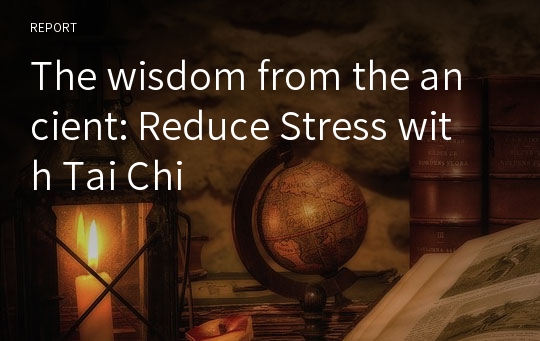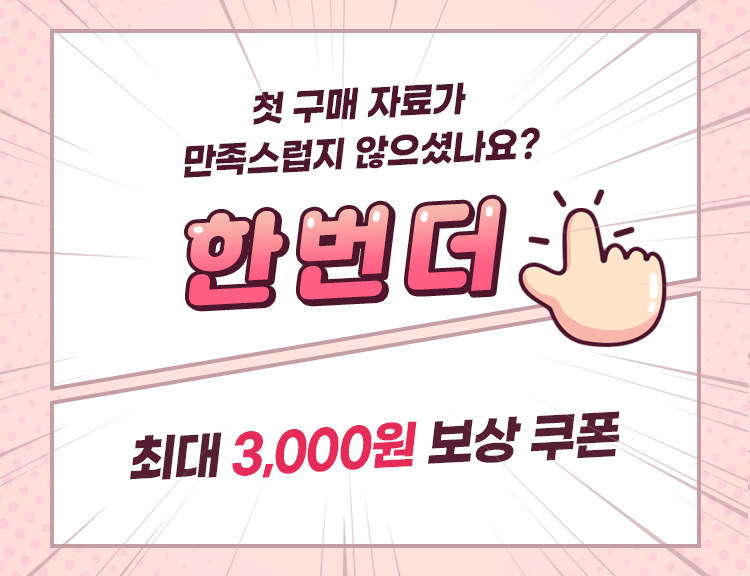The wisdom from the ancient: Reduce Stress with Tai Chi
*수*
다운로드
장바구니
소개글
The wisdom from the ancient: Reduce Stress with Tai Chi목차
없음본문내용
Many people from all around the world practice Tai Chi, one of the ancient martial arts originated from China. They learn Tai Chi for martial art, self-defense, self-control, or mental calmness. Tai Chi with Eastern Taoism philosophy is characterized as slow and soft movement. Through generations, Tai Chi has developed in different styles and different forms, but most of new practitioners start with the simplified 24 forms Tai Chi which is purposely made for its simplicity and easiness to learn.<중 략>
Placebo effect is that people can have effectiveness by simply believing that the treatments upon them cure their disease even if the treatments have no efficacy of medicine. So open studies can make the participations to believe that Tai Chi can reduce their stress and relax their bodies, then the participations experience stress reduction regardless of real effectiveness of Tai Chi.
The researches that have studied until now have a limitation that most participants are the new beginners practicing Tai Chi within a year.
참고 자료
Bailey, E. (2012, October 16). Why Breathing Helps Us Relax. Health Guide.Retrieved from http://www.healthcentral.com/anxiety/c/1443/156561/breathing-helpsChou, K., Lee, P., Yu, E., Macfarlane, D., Cheng, Y., Chan, S., & Chi, I. (2004) Effect of Tai Chi on Depressive Symptoms amongst Chinese Older Patients with Depressive Disorders: a Randomized Clinical Trial.International Journal of Geriatric Psychiatry 2004; 19: 1105-1107. DOI: 10.1002/gps.1178
Douglas, B. (2005) Complete Idiot's Guide to T'ai Chi and QiGong?(3rded.). Alpha.
Esch T, Duckstein J, Welke J, Braun V. (2007)Mind/body techniques for physiological and psychological stress reduction: stress management via Tai Chi training - a pilot study.Med SciMonit. 2007 Nov;13(11):CR488-497.
Li, F., Harmer, P., Fitzgerald, K., Eckstrom, E., Stock, R., Galver, J., Maddalozzo, G., &Batya, S. S. (2012)Tai Chi and Postural Stability in Patients with Parkinson’s Disease. The New England Journal of Medicine 366;6, 511-519.
Nordqvist, C. (2009, April 11). What Is Stress? How To Deal With Stress. Medical News Today.Retrieved from http://www.medicalnewstoday.com/articles/145855.php.
Pomfrey, E. (N.D.). What is Stress.Transcendental Meditation. Retrieved from http://www.tm.org/resource-pages/60-what-is-stress
Qifeng, Z. (N.D). The History of Tai Chi. Retrieved from UCLA website, http://www.ee.ucla.edu/~qifeng/history.html
Tai Chi, Popular all over the World. (2009). Retrieved August 26, 2009, from Confucius Institute Online Website, http://kungfu.chinese.cn/en/article/2009-08/26/content_16239.htm
Stress, anxiety levels continue to climb for high school, college students.(2010, January 12). The Associated Press.Retrieved from Oregonlive website,http://www.oregonlive.com/health/index.ssf/2010/01/stress_anxiety_levels_continue.html
U.S. Department of Health and Human Service. (2010, August) Tai Chi: An Introduction. Retrieved from National Center for Complementary and Alternative Medicine (NCCAM), http://nccam.nih.gov/health/taichi/introduction.htm
Wall, R.(2005). Tai Chi and Mindfulness-Based Stress Reduction in a Boston Public Middle School.National Association of Pediatric Nurse Practitioners.volume 19 number 4, 230-237
doi:10.1016/j.pedhc.2005.02.006
Wang, C., Bannuru, R., Ramel, J., Kupelnick, B., Scott, T., &Schmid, C. H. (2010) Tai Chi on Psychological Well-being: Systematic Review and Meta-analysis.BMC Complementary and Alternative Medicine 2010, 10:23. Retrieved from http://www.biomedcentral.com/1472-6882/10/23
White, L. S. (2012). Reducing Stress in School-age Girls Through Mindful Yoga. National Association of Pediatric Nurse Practitioners, volume 26 number 1, 45-56. doi:10.1016/j.pedhc.2011.01.002
Xu, C., Zhang H.W., Leung A.WN., Lin, Z.X., and Qin, Y. (2012) Tai Chi for Improving Recovery after Stroke.Cochrane Database of Systematic Reviews 2012, Issue 12. Art. No.: CD010207. DOI: 10.1002/14651858.CD010207.











